Articles by KumKum Dasgupta
Why President Kovind’s Constitution Day speech is important
He expanded the existing parameters of what constitutes for social justice, making the phrase much more relevant to modern India.
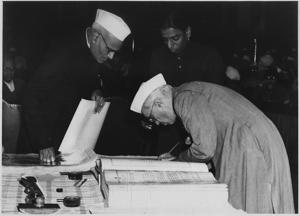
Updated on Nov 03, 2019 11:59 PM IST
Hindustan Times | KumKum Dasgupta
New UN report on warming proves climate communication is failing
One reason why the issue is not getting the required traction could be the gap that exists between the world of scientists and the general public.
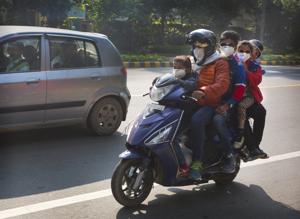
Updated on Nov 23, 2018 03:34 PM IST
Hindustan Times | KumKum Dasgupta
The murderous attack on green activists in Meghalaya is an assault on our collective future
Unlike the police firing on people protesting against Sterlite in Tamil Nadu or for that matter the protests of Dongria Kondhs against Vedanta in Odisha, the attacks on Kharshiing and Sangma went unnoticed on prime time. But what is happening in Meghalaya is a story that applies to all of the country

Published on Nov 21, 2018 11:09 AM IST
Hindustan Times | KumKum Dasgupta
The SC order on Aravalli is not just about illegal mining
It must trigger a national debate and discussion not just on air pollution but also the rising threat of desertification

Updated on Oct 29, 2018 11:09 AM IST
Hindustan Times | KumKum Dasgupta
‘Nations must develop action plans to tackle inequality’
Social spending is almost always progressive because it helps reduce existing levels of inequality. Despite this, in many countries, social spending could be far more progressive and pro-poor.
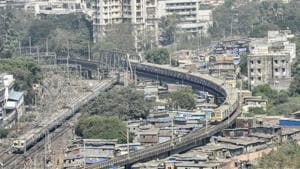
Updated on Oct 16, 2018 03:53 PM IST
Hindustan Times | KumKum Dasgupta
Can a green tax save India’s Himalayan towns?
A cess on tourists will not save them and their fragile ecosystem unless such steps are backed by strong regulation and implementation of existing laws

Updated on Oct 15, 2018 03:01 PM IST
Hindustan Times | KumKum Dasgupta
Most Indian cities don’t have a climate plan in place. Here’s why
India has been ranked as the sixth most climate change-vulnerable country by the Climate Risk Index 2018. Dealing with current vulnerabilities and projected climate change impacts needs innovative thinking and participatory planning and action.In an Age of Consequences, these could make or break cities
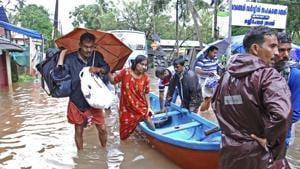
Updated on Oct 01, 2018 07:38 AM IST
Hindustan Times | KumKum Dasgupta
Stubble burning can’t be a shield for inaction on Delhi’s air pollution
Neither the Delhi government nor the central government has the political will to address the issue. They depend on the generosity of our monsoons, winds and overall climate to mitigate air pollution. If anything, their respective policies on urbanisation have only made the situation worse
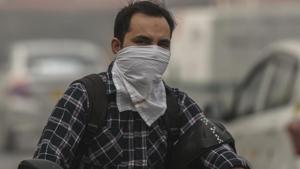
Updated on Sep 24, 2018 10:09 PM IST
Hindustan Times | KumKum Dasgupta
The new CPCB report on river pollution does not reveal the true picture
The number of polluted stretches in India’s rivers has increased to 351 from 302 two years ago, and the number of critically polluted stretches — where water quality indicators are the poorest — has gone up to 45 from 34 in 28 states and six Union Territories
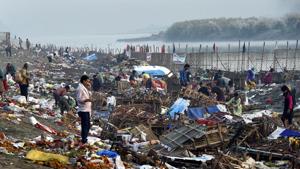
Updated on Sep 21, 2018 07:33 AM IST
Hindustan Times | KumKum Dasgupta
Personal past: How families and communities in India are setting up niche museums
Family or community-run museums are important because they preserve a range of micro historical, cultural and political identities
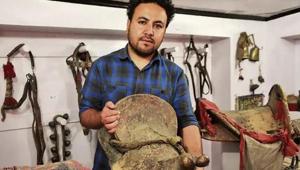
Updated on Sep 19, 2018 12:52 PM IST
Hindustan Times | KumKum Dasgupta
Septic tank deaths could take the sheen off the Swachh Bharat Mission
Under its Swachh Bharat Abhiyan, the government had planned to build 21 crore toilets by 2019. Did they think in terms of the number of septic tanks and the burden it will have on scavengers?
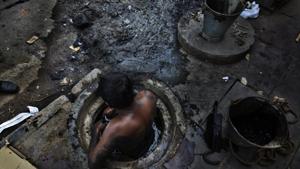
Updated on Sep 10, 2018 04:56 PM IST
Hindustan Times | KumKum Dasgupta
Let the Kerala floods not be another tsunami story
Indian states have a weak memory of disasters, not by design, but by choice. In an era of climate variability, this could be akin to committing ecological harakiri.
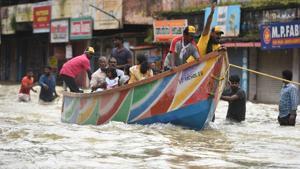
Updated on Aug 22, 2018 05:38 PM IST
Hindustan Times | KumKum Dasgupta
A Himalayan Mess: Growing garbage pile a threat to mountain ecosystem
Indians are getting adventurous. But as more of them take to trekking, the trash they invariably leave behind on the mountains spells disaster for the environment
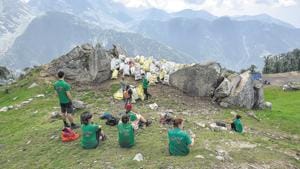
Updated on Aug 21, 2018 04:57 PM IST
Hindustan Times | KumKum Dasgupta
Why India must safeguard the rights of internal migrants
It’s not just refugees who often face the wrath of a host State; even internal migrants, especially the poor, face similar roadblocks in their own countries even though they are legitimate citizens. The negative feeling about migrants reflects in India’s policies too: Our social and political rights are based on the assumption that people are sedentary.
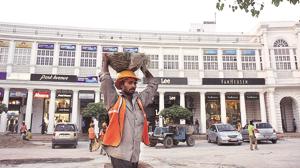
Updated on Jun 26, 2018 12:38 PM IST
Hindustan Times | KumKum Dasgupta
Why Himalayan towns are on the brink of a Shimla-type water crisis
In an interview with Hindustan Times, Director of the University of Cambridge Conservation Research Institute Professor Bhaskar Vira, who along with his colleague Eszter Kovacs and photojournalist Toby Smith has documented the ecological challenges of the Himalayan towns including Shimla, speaks about the reasons behind the crisis and the way forward.
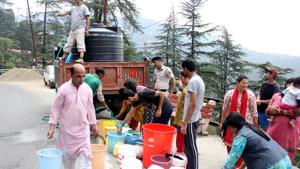
Updated on Jun 04, 2018 05:38 PM IST
Hindustan Times | KumKum Dasgupta
Why Sterlite-like protests are inevitable in India
More often than not, the State fails to implement environmental laws and use funds meant for affected communities effectively
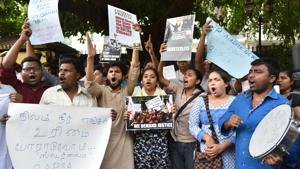
Updated on May 28, 2018 08:46 AM IST
Hindustan Times | KumKum Dasgupta
Why is India’s local bureaucracy so insensitive?
It’s not just insensitivity that led to the stamping of caste names on the chests of recruits, it’s also lack of training
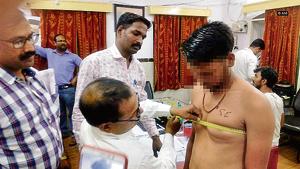
Updated on May 09, 2018 12:34 PM IST
Hindustan Times | KumKum Dasgupta
Gondi, Walmiki, Malhar, Korga: Mother tongues India risks losing
Hansda Sowvendra Shekhar’s ‘The Adivasi Will Not Dance’ is a fascinating book. Other than being a searing account of the marginalisation of tribals in Jharkhand, there is another reason to be effusive about it: Just below the title on the aquamarine-coloured cover, which has a sketch of a hand on a dhol, are four words in Santhali’s Ol-Chiki script: ‘Aale Hor Bale Eneja’ (‘We Santhals Will Not Dance’).

Updated on May 06, 2018 10:30 PM IST
Hindustan Times | KumKum Dasgupta
Why we must stop valourising ‘daredevil’ hill drivers
Twenty-seven schoolchildren died in a road mishap in Himachal Pradesh. Blaming the driver would be the easiest thing to do
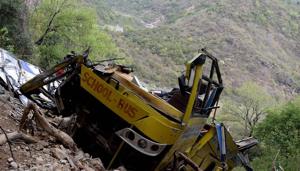
Updated on Apr 12, 2018 04:42 PM IST
Hindustan Times | KumKum Dasgupta
Why the learning deficit should not surprise us
Textbooks often don’t reach students in State-run schools on time. This is a drag on education

Updated on Mar 28, 2018 01:00 PM IST
Hindustan Times | KumKum Dasgupta
Meet the man who is digitally conserving and restoring the Ajanta caves
The paintings in the 2000-year-old Ajanta Caves are in a precarious state and can’t be fully restored. But there is an attempt to restore them digitally

Updated on Mar 25, 2018 02:58 PM IST
Hindustan Times | KumKum Dasgupta
Poverty is not the only reason behind child marriages in India
An education system that helps them continue and build prospects will definitely help in addressing child marriages.
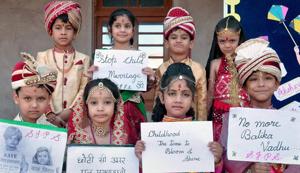
Updated on Mar 13, 2018 05:29 PM IST
Hindustan Times | KumKum Dasgupta
Treat green spaces in cities as urban sacred groves
Dr Salim Ali Bird Sanctuary in Pune is dying a slow death. This is one more example of our disregard for natural treasures

Published on Mar 05, 2018 01:02 PM IST
Hindustan Times | KumKum Dasgupta
Papon sexual assault row: The singer’s decision to use the child to defend himself is nauseating
The young girl was possibly tutored by her family, which is trying to contain the “damage” that a case such as this may cause to the girl’s reputation, considering nothing dies on social media. But what happens if a few years later, she realises that what happened to her is not standard, and no one has the right to touch a child inappropriately. This incident may affect her irreparably.

Updated on Feb 27, 2018 07:18 PM IST
Hindustan Times | KumKum Dasgupta
Why states must back Modi govt’s new tribal outreach plan
The Centre plans to reach remote villages to open value addition centres in tribal households, organise tribal people in self-help groups, set up godowns for storage and initiate massive awareness programmes involving state governments and elected representatives.

Updated on Feb 06, 2018 04:29 PM IST
Hindustan Times | KumKum Dasgupta
Cape Town is running out of water. Indian cities must take heed
The crisis in Cape Town, the second-most populous urban area in South Africa after Johannesburg, did not happen overnight: It is a result of three years of low rainfall and drought, coupled with a growing population and an increase in water consumption and the fact that 60% of Cape Town residents are not saving water.
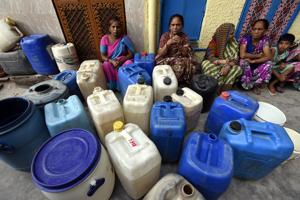
Updated on Jan 19, 2018 02:49 PM IST
Hindustan Times | KumKum Dasgupta
Meghalaya shows the way on social audit. Other states must follow
Social audits are increasingly becoming critical these days because the accountability and transparency mechanism of India’s local government structure has not kept pace with the increasing responsibilities and flow of funds that are delegated to local governments.

Updated on Dec 31, 2017 07:55 PM IST
Hindustan Times | KumKum Dasgupta
Ganga pollution: ‘Just building sewage treatment plants is not enough to clean the river’
Long-term action plan has by necessity to do with ensuring ‘aviralta’ in our rivers. The report of the IIT consortium did suggest a workable way forward but since it was a creation of a previous regime its report was consigned to the dust bin. There is lot of hard work and good analysis in that report. Between the Ganga Authorities Notification (a good initiative of the present regime) and the IIT consortium report there is good road map for Ganga rejuvenation in place. But is there real political will for the cause over and above the slogans?
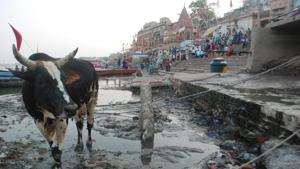
Updated on Dec 26, 2017 03:49 PM IST
Hindustan Times | KumKum Dasgupta
Why the CAG rap on Ganga pollution may not change anything on ground
It’s really surprising that a country that views the Ganga as a some kind of a religious entity (it’s a living entity, said Uttarakhand High Court earlier this year and the UPA declared it India’s ‘national river’), has failed so spectacularly to keep it clean. There is no point blaming successive governments only; citizens are equally to blame. To clean Ganga, the State must start with rejuvenating and cleaning the tributaries that feed the river
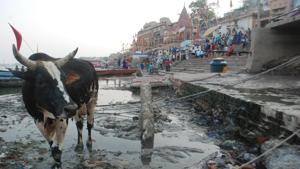
Updated on Dec 22, 2017 05:27 PM IST
Hindustan Times | KumKum Dasgupta
Using evidence for public policy gains traction in India
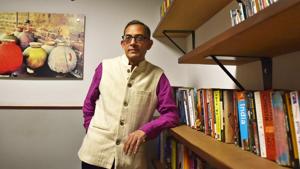
Updated on Dec 21, 2017 01:02 PM IST
Hindustan Times | KumKum Dasgupta






